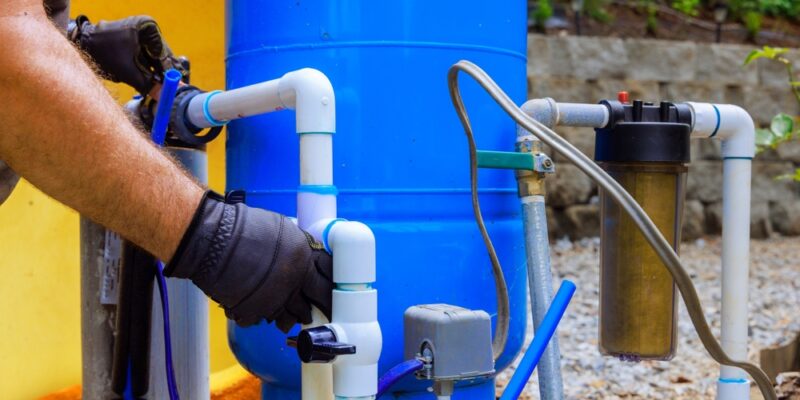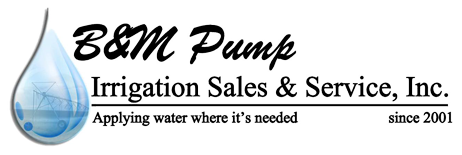
What to Consider Before Drilling a Well on Your Property
Drilling a well on your property is an exciting prospect for homeowners and farmers alike. It promises the independence of a private water source, which can be especially beneficial in rural areas or places with unreliable municipal water supplies. For farm owners, water wells can provide an essential means of irrigation to keep crops healthy, while also contributing to overall sustainability. However, before taking the plunge and drilling a well, several important factors must be considered. The decision involves more than just digging a hole and installing a pump. In this article, we will explore the key considerations that need to be addressed before drilling a water well on your property.
Understanding Local Water Availability
Before drilling a well, it is critical to understand the local water table and the overall availability of groundwater in your area. The first step is to research the local geology and hydrology. You’ll need to know how deep you’ll have to drill to access water, whether the water table is likely to fluctuate throughout the year, and if the well will yield enough water to meet your needs. In some regions, drilling a well may be a simple process, while in others, it can be complicated by rock formations or a low water table. It’s essential to hire a professional to conduct a site survey and offer expert advice on the feasibility of drilling a well in your location.
Additionally, understanding the aquifers in your region will help you determine whether the water will be sufficient for your needs. If you are drilling a well for farm water wells or irrigation purposes, you’ll want to make sure that the aquifer can sustain the amount of water required for an irrigation system. Insufficient water supplies could lead to problems not just for the farm, but for the local ecosystem as well. Some areas may have regulations regarding groundwater use, limiting the amount you can pump, which could further affect your plans.
Local Regulations and Permitting
Before drilling a well on your property, it’s important to check the local regulations governing water wells in your area. Depending on where you live, you may need a permit to drill a well, especially if it’s going to be used for irrigation or other large-scale purposes. In some regions, the water table is a shared resource, and there are strict rules governing how much water can be extracted and who can access it. You might also need to follow certain protocols related to well construction, maintenance, and testing. Failure to obtain the proper permits could result in fines or, in the worst case, the dismantling of your well.
Many states and municipalities also have requirements regarding the construction of water wells, such as ensuring the well is sealed to prevent contamination, the proper depth of the well, and the installation of safety devices. A professional well contractor will be familiar with these regulations, but it’s important to stay informed yourself to avoid unexpected hurdles. If you’re planning to use the well for water irrigation systems for farms, additional rules may apply related to agricultural water rights.
Well Construction and Equipment Choices
The type of well you decide to drill and the equipment used will depend on your water needs and your property’s characteristics. There are several different types of water wells, including dug wells, drilled wells, and driven wells. Drilled wells, which are the most common for residential and agricultural use, are typically the best option when dealing with deep aquifers. These wells require the use of a drilling rig to bore a hole into the ground, sometimes to great depths. For farms that need a reliable water source for irrigation, drilled wells are often the most efficient option.
Once you decide on the type of well, you must also choose the appropriate pump system. A pump is needed to bring the water from the well to the surface, and the type of pump you use will depend on the well’s depth, the volume of water required, and the pressure needed to distribute it. For farms that rely on irrigation, a pump irrigation system can be designed to meet the specific demands of your crops. The size and power of the pump are critical factors that will determine the effectiveness and efficiency of the irrigation system. For larger farms, a more complex system that includes storage tanks and filtration may be necessary.
In addition to pumps, filtration systems are also a key consideration. While water from a well is typically clean, it can still contain minerals or bacteria that need to be filtered out. For farm irrigation systems, having clean water is vital to ensure the health of your crops. A good filtration system can help remove harmful elements from the water before it is used. Furthermore, regular maintenance of both the pump and filtration system is essential to avoid costly repairs and ensure a continuous water supply.
Environmental Impact
Drilling a well on your property can have an impact on the surrounding environment. For instance, over-extraction of water from a well can lead to the depletion of the local aquifer, which can affect nearby wells, water tables, and ecosystems. Additionally, the process of drilling a well can disturb the local environment, especially if the well is being drilled in an ecologically sensitive area.
If you plan to use the well for agricultural purposes, it’s important to consider the long-term environmental effects. Consistent irrigation can lead to soil degradation and the depletion of water resources over time. Using water efficiently and responsibly is essential to maintain a balance between agricultural needs and environmental health. Additionally, it’s wise to explore water conservation practices, such as drip irrigation or rainwater harvesting, that can help reduce the need for excessive pumping.
Another consideration is the impact of well construction on local wildlife. The drilling process itself may disrupt local habitats, and the noise and vibrations could affect wildlife in the area. It’s worth consulting with local environmental agencies or organizations to better understand the potential ecological impact of drilling a well on your property.
Costs and Long-Term Maintenance
Drilling a well can be a significant upfront investment, and it’s essential to budget not just for the drilling process itself, but for the installation of equipment, such as pumps and filtration systems, as well as ongoing maintenance costs. While drilling a well might save you money in the long run by eliminating water bills, the initial cost can be substantial. On top of the drilling fees, you may need to purchase a pump irrigation system or install water storage tanks for farms, which adds to the total cost.
Maintenance of your well is another ongoing expense to consider. A well needs to be inspected regularly to ensure that it is functioning properly, and the pump and filtration system must be cleaned and serviced periodically to avoid malfunctions. Additionally, you may need to test the water quality regularly to ensure that it remains safe for use, particularly if it’s being used for irrigation or drinking purposes.
The long-term sustainability of your well should also be factored into the overall cost analysis. While wells can last for decades, they may require repairs over time. If the water table in your area fluctuates significantly, you may need to drill deeper to access sufficient water, adding to the cost. However, when compared to the long-term expense of relying on municipal water or purchasing irrigation supplies, drilling a well can be an economical and reliable solution.
Conclusion
Drilling a water well on your property is a decision that should not be taken lightly. There are numerous factors to consider, from understanding the availability of local groundwater to navigating local regulations and ensuring the right equipment is installed. Whether you’re drilling a well for your home or for farm water wells, it’s essential to work with professionals who can guide you through the process and help you make the best decisions for your needs.
For farm owners, water wells are an invaluable resource that can support the growth of crops through efficient water irrigation systems for farms. However, it’s crucial to balance the need for water with responsible environmental practices and long-term maintenance considerations. With proper planning and investment, a well can provide a reliable water source for years to come, offering independence and sustainability for your property.
Need an Irrigation System Company in Seminole, TX?
Welcome to B&M Pump Irrigation Sales & Service, Inc.! We are your professional irrigation specialist! Our typical services include complete pump service, water well service, system design, and pivot systems. We deliver personal service and reliability to our customers in Texas, Oklahoma, New Mexico, and Arizona. No matter where you are in the southwest, B&M Pump Irrigation Sales & Service, Inc., is a name you can trust. We strive to educate owners and operators on making pumps and motors last longer and work more efficiently. We sell good quality products at a fair price and stand behind the products we sell. Give us a call today to speak with one of our service experts today!
Categorised in: Well Service
